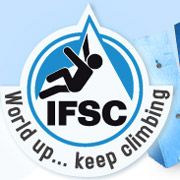Compétition
>Actualité

Ras-le-bol des compétiteurs envers les nouvelles règles de l'IFSC
L'escalade sportive est en pleine mutation depuis quelques années. En 2012, celle-ci se traduit par de nouvelles règlementations imposées lors des compétitions de difficulté par l'International Federation of Sport Climbing (IFSC). La saison a à peine commencé que déjà les compétiteurs dont certains Belges crient au ras-le-bol. En cause, la règle qui veut que les ex-aequo en finale soient départagés sur base de leur temps. Un critère de vitesse qui ne plaît pas à tout le monde. Nos grimpeurs belges en ont déjà fait l'expérience: au profit d'Anak Verhoeven à Moscou et au détriment de Loïc Timmermans à Voiron.
Le coup de gueule est collectif et débouche sur l'initiative d'une pétition à envoyer à 5 représentants de la fédération internationale (nous reprenons le texte et les adresses en Anglais ci-dessous).
Les liens entre pratiquants et dirigeants sont souvent tendus. La portée du texte ci-dessous en est une nouvelle preuve.
Leadclimbers don’t like to win because of their speed
Dear president and other members of IFSC and EFSC official board,
Since the European Youth Cup in Edinburgh the new European rules are applied. One of those is that in finals there’s no more countback to the results in qualification and the only thing that really matters in case of ex aequo’s is the climbing time. For several reasons I, and others, believe that this new rule should be reconsidered.
Biggest problem of all is the advantage you give to the later finalists. Once finalists know that there has been a top out, they now they can hurry up and have to take risks. The first one who tops will most probably do so at a normal leadclimbing pace (eg in Moscow more than 7 minutes) whereas the next ones speed up (eg Moscow 3 minutes up to 2 minutes and 40 seconds). This means that there’s a big disadvantage for the first climbers.
Next to the fact mentioned above there’s also the fact that leadclimbers do not like to win because of their speed. They even have the impression they did not win because of their ability to climb hard routes, which still is the point in leadclimbing. With this new rule it is possible for climbers to win having done the same in final as others and having been a lot worse in qualifications. It’s not logic that someone who during the whole competition proofed to climb the harder stuff will loose from someone who was but faster in a final that came out too easy or with an obvious crux sequence no one could pass.
Also, in the past there weren’t as many superfinals and in general they were all solved within reasonable time. On senior level there might have been some problems in 2011 concerning ex aequo’s but these were merely due to poor routesetting and we believe that competitors cannot be the victims of the routesetters mistakes. We believe that through good routesetting the old format with qualifications, (semi final), finals and if needed superfinal should be as interesting for television coverage as the new format of lead-speed climbing which is in fact a different discipline. Even so, if you are focusing on deleting ex aequo’s, having time as preceding countback or having it the other way around has no influence on the amount of ex aequo’s afterwards but it does change a lot for the manner in which climbers have to climb their competition routes, qualifications included. Now, with the new rule qualifications have a diminished importance, they only serve to qualify and climbers just need to make sure they make it to final.
On strange fact in this matter is that, as we heard, competitors themselves announced through the athlete’s commission that they don’t want time to be more important than countback. This makes us wonder why on youth level the decision was made to do so. Isn’t the opinion of the climbers themselves important enough?
The one reason pointed out to be a pro in this matter, namely the different mental pressure that is put on young climbers who came in finals on ex aequo base after qualifications and thus putting them on a different stress level if applying the countback rule makes no difference to the past. One question starts to pop up more and more, do we really need to change our sport to become Olympic or do we want to perform in our sport as it stands and if possible become an Olympic sport? We hope that in 2013 all goes back to normal where good routesetting ensures spectacular competitions with only once in a while a superfinal… Kind regards,
Your Name
Petition to send by email to:
[email protected] (The IFSC, our federation), [email protected] (Wolfgang Wabel, President of the European Council, European representative in the IFSC Executive Board), [email protected] (Damien You, Sport vice-president, European representative in the IFSC Sport Department), [email protected] (Tuur Ceulers, General Secretary), [email protected] (ourselves, so that we keep track of how many people support our cause)
Vous devez être enregistré pour laisser un commentaire
Se logger
S'inscrire
Les archives des news
Actualité
Compétition Que retenir du Championnat de Belgique de bloc 2015?
Le dernier Championnat de Belgique de bloc 2015 a vu le sacre de Simon Lorenzi et Chloé Caulier. Devant une assistance clairsemée de par la proximité des vacances, les deux grimpeurs ont affirmé leur supériorité avec beaucoup d'aisance.
Escalade en salle Hungaria fermée, quelles sont les alternatives d'escalade à Leuven?
A Leuven, une ère s'est achevée ce 30 décembre 2015. la salle d'escalade Hungaria y a définitivement fermé ses portes. D'aucuns diront que c'est tout un pan de l'histoire de l'escalade belge qui se termine. Quel futur pour les grimpeurs locaux?





beton
Gaat deze mail verstuurd worden? Anders verbeter ik de foutjes graag nog eerst.
Hube
Spreekt u van de email in het Engels? Indien ja u mocht zeker uw opmerkingen tav [email protected] opsturen.
Hube